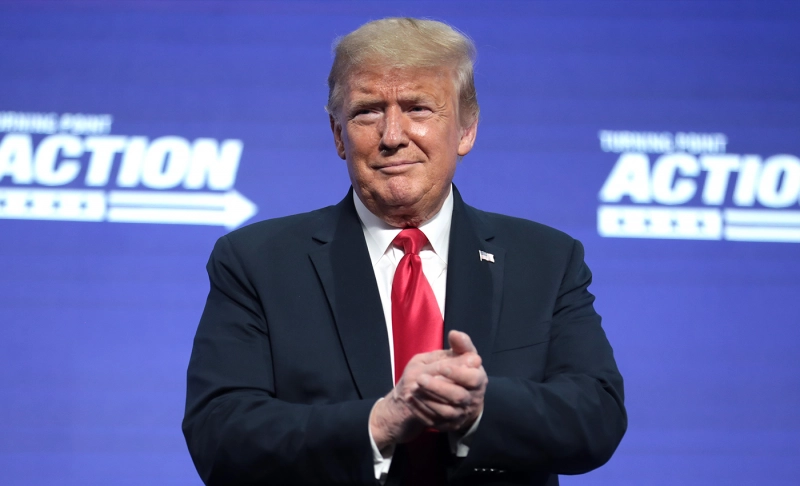By: Priyam Nayak
November 2 2020

Former FBI chief Robert Mueller's inquiry found no evidence of a criminal conspiracy but a GOP report revealed ties between Trump's aides and Russia.
Former FBI chief Robert Mueller's inquiry found no evidence of a criminal conspiracy but a GOP report revealed ties between Trump's aides and Russia.During the presidential debate on Oct 22, President Trump claimed that no evidence of his alleged collusion with Russia had been found. An inquiry led by the former director of the FBI Robert Mueller, focused on the alleged collusion between Trump's 2016 presidential campaign team and Moscow found no evidence of a conspiracy, it did lay out 10 instances where the president possibly obstructed justice. The report said, "Based on the facts and the applicable legal standards, we are unable to reach that judgment. Accordingly, while this report does not conclude that the president committed a crime, it also does not exonerate him." Mueller has said his report did not exonerate the president, but that charging a sitting president was not an option, BBC reported. He told the House judiciary committee, that the president was not exculpated for the acts that he allegedly committed adding that Trump could theoretically be indicted after he leaves office. A Senate Intelligence Committee report published in Aug 2020 found instances that indicated Trump’s aides colluded with Russia and that the extent of the cooperation in 2016 was larger than what was previously thought. “Russia and other countries took advantage of the Transition Team’s inexperience, transparent opposition to Obama Administration policies, and Trump’s desire to deepen ties with Russia, to pursue unofficial channels through which Russia could conduct diplomacy,” according to the GOP-led committee, noting that this made the “transition open to influence and manipulation.” Though investigations by the House and Mueller concluded there were some ties between Trump’s campaign members and Russian figures, the Senate investigation highlighted the ties were much deeper than earlier known. One such figure was Natalia Veselnitskaya, a lawyer that Donald Trump Jr. met in June 2016, alongside campaign manager Paul Manafort and Trump’s son-in-law Jared Kushner after being promised dirt on Democratic rival Hillary Clinton. Instead, the report stated Veselnitskaya steered the discussion toward Russian sanctions. The report found that complex relationships were established between campaign associates with Russian ties and individuals close to Trump. For example, American businessman Bob Foresman “conveyed brief messages” between the campaign and Kremlin-linked individuals, including a confidant of Russian President Vladimir Putin. Manafort came under heavy criticism in the report for his “willingness to share information with individuals closely affiliated with the Russian intelligence services” that “represented a grave counterintelligence threat.” Redacted in parts, the report detailed extensive contacts between Manafort and Konstantin Kilimnik, a Russian national who worked closely with Manafort for years. The report labeled Kilimnik a “Russian intelligence officer,” and said Manafort sought on numerous occasions to “secretly share internal Campaign information with Kilimnik.” It also said the committee obtained “some information” linking Kilimnik to Russian intelligence services’ efforts to hack and leak information to damage Hillary Clinton and the Democratic Party.